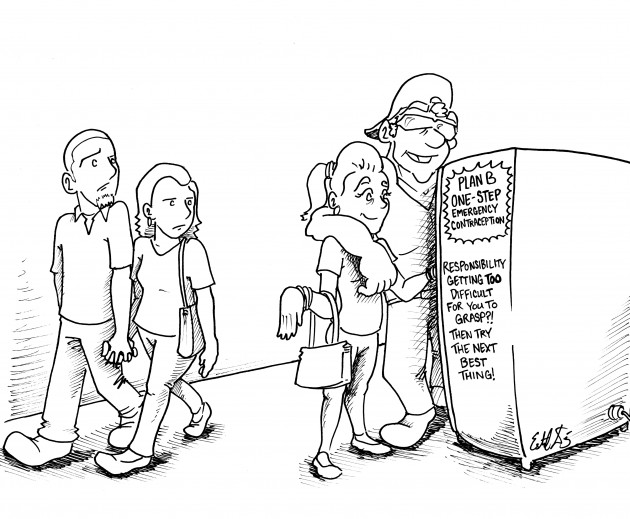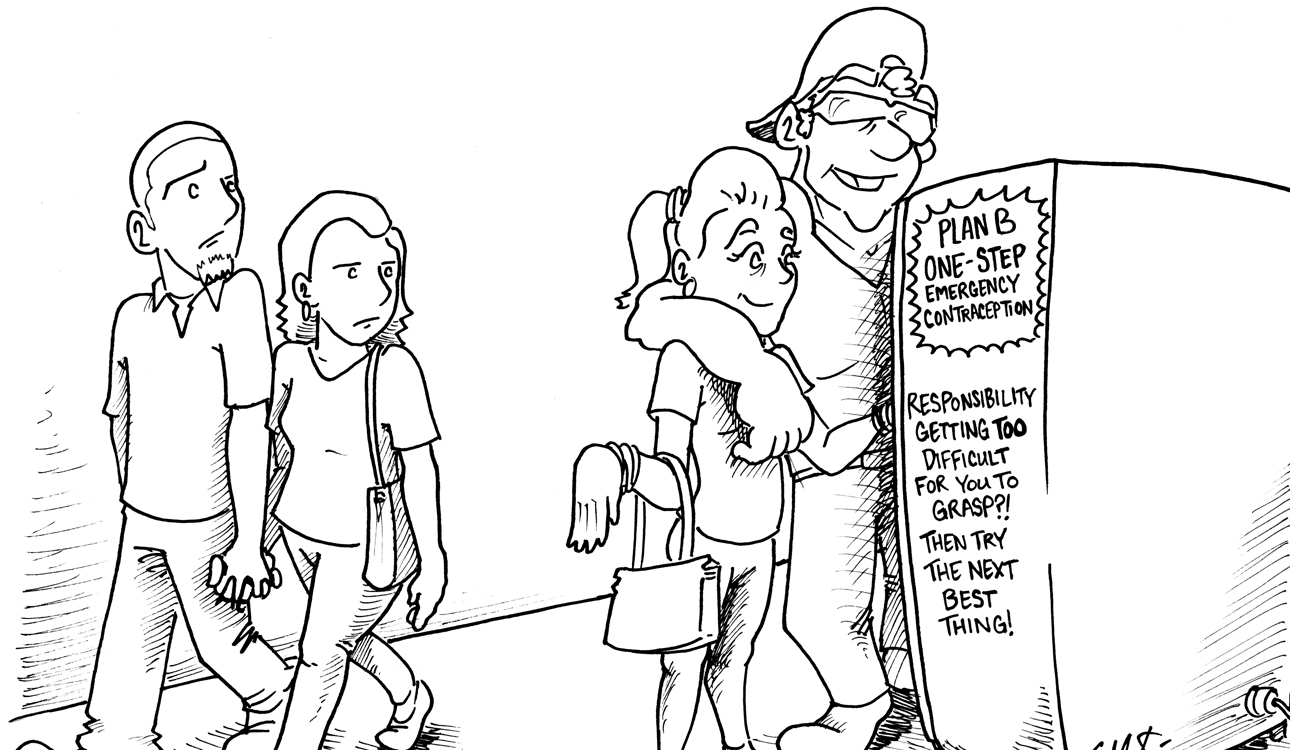
Baylor says abstinence is always the answer, but Shippensburg University in Pennsylvania has other ideas.
Recently the university installed Plan B One-Step emergency contraception vending machines in their campus health center. After checking in at the front desk, students are led to a private room in the health center where they can purchase the emergency contraceptive for $25.
The university began selling Plan B after 85 percent of the student body supported doing so in a survey. From 350 to 400 doses are sold yearly at the university.
While the pill has relatively low side effects, some are worried about the consequences of having Plan B so easily available and at such a low cost. Normally, only those older than 17-years-old are able to get the morning-after pill from a pharmacist for $49.99.
Although the university says all current students are 17 or older, they are excluding the possibility that a student younger than the legal age could obtain Plan B without a prescription.
Plan B is often mistaken for the abortion pill. Plan B is most effective if taken within 72 hours following unprotected sex, but it has no effect if the woman is already pregnant.
Because of the relative safety and effectiveness of Plan B, members of the American College Health Association said they do not see a difference between offering the emergency contraceptive and other medications like ibuprofen in vending machines.
While it is important to educate students on sexual health, offering contraceptives – especially one that can promote unprotected sex – the same way candy bars can be purchased takes away from the seriousness of the issue.
Each time a woman takes Plan B, more so if it is used frequently, the pill loses a little bit of its effectiveness. It is concerning to imagine how many times the school will have to restock the vending machine and how much sales of Plan B may increase.
Having to go to the pharmacy, face the person on the other side to ask for Plan B and pay the high cost of the pill helps young people face the consequences of their actions. While we can hope the vending machine will help prevent unplanned pregnancies by getting students the contraceptive they would not have bought otherwise, it is more likely that students will take advantage of the availability of emergency contraceptives.
Plan B does not protect against STDs or STIs. If students get the idea that they don’t need to use protection because they can run by the clinic and pick up the pill, the university may see an unexpected rise in students with sexually transmitted diseases and infections.
It is important that students remember to protect themselves against unplanned pregnancies and diseases rather than relying on a pill to bail them out later.
Unfortunately, we may see a rise in irresponsible Plan B use anyway if President Obama’s birth control plan, which makes health insurance completely cover the cost of Plan B, takes effect.




